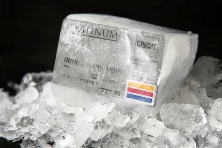Credit Freeze / Credit Lock
 Credit freeze, sometimes called credit lock or security freeze enables you to block access to your credit reports and scores. When you lock your credit report, the credit bureaus are not allowed to disclose your credit reports and scores to NEW lenders, creditors or any other entity that requests your information.
Credit freeze, sometimes called credit lock or security freeze enables you to block access to your credit reports and scores. When you lock your credit report, the credit bureaus are not allowed to disclose your credit reports and scores to NEW lenders, creditors or any other entity that requests your information.Credit freeze is viewed as the most effective way to prevent identity theft. When your credit report is frozen, even someone who knows your name, date of birth and SSN should be stopped from opening new accounts in your name.
Since lenders typically require access to a borrower’s credit report before issuing a loan in the borrower’s name, locking your credit report at the 3 major credit bureaus effectively blocks the access of potential NEW lenders to your credit information, thus effectively stops the process of issuing new credit and opening new accounts in your name.
Are there any exceptions?
Yes. Freezing your credit report blocks only access of NEW potential lenders. The following entities continue to have access to your information with the credit bureaus:
- Those lenders that you already have an existing account with are not blocked, and continue to have access to your information for purposes of account maintenance and monitoring.
- Federal, state and local government agencies (e.g. law enforcement, child support, courts etc).
- Credit monitoring services
- Federal government agencies
- In connection with your application for insurance
What if I need new credit?
Freezing your credit report requires you to plan ahead. When your credit is frozen, you will not be able to get new credit (Mortgage, car loan, personal loan, credit cards, rental contracts etc) because your potential creditor will not be able to access your file and asses your risk.
However, you can temporarily unfreeze your credit report to obtain new credit and then freeze it again. If you currently have a security freeze on your credit file and would like to temporarily lift it for a creditor you have two options:
- You may request a temporary lift for a specific credit grantor, or
- You may request a date range lift for a specific period of time, ranging from 1 day to 1 year.
What are the differences between Security Freeze and Fraud Alert?
A security freeze is the only tool that actually allows consumers to limit access to their credit reports and scores.
There are four major differences between Fraud Alert and Credit Freeze:
- A fraud alert doesn’t block access to your credit reports and scores. It only attaches a warning to them, notifying potential creditors that they must take certain steps to verify a credit applicant’s identity before extending credit.
- While Credit Lock lasts indefinitely (until you actively remove it), a fraud alert lasts only 90 days (initial fraud alert).
- Placing fraud alert with any one of the 3 major credit bureaus automatically puts fraud alert with the other two bureaus.
Credit lock must be put separately by you with each bureau. - While credit report freeze costs money, placing fraud alerts is free of charge.
How long does security freeze last?
Security freeze lasts until you remove it, either temporarily or permanently.
Does a credit lock affect my credit score?
No. It has absolutely no effect on your score.
Does new information keeps building up in my report while it is frozen?
Yes. Credit lock puts a one way lock on your file. While the credit bureaus are not allowed to disclose your file with third parties, information from third parties to the credit bureaus continue to flow regularly and build up in your report.
How to freeze credit report
Freezing or locking your file with the credit bureaus is fairly simple and can be done online. Each of the 3 major credit bureaus has an online form that you need to fill in order to activate the security freeze. You need to repeat the process for each bureau separately.
When you freeze your credit report you will be given a password or a PIN number. Make sure you keep it because it will be required to lift the credit lock when you’ll want to apply for new credit.
Removing a credit freeze
Thawing your credit is just like freezing it. You will need to enter the PIN number or password you were given when you froze it.
How much does credit freeze cost?
Putting or lifting a freeze usually cost $10. In some states these fees are waived for victims of identity theft.
Do all states have credit report freeze laws?
As of November 13, 2008, forty-eight states and the District of Columbia have a credit freeze law. The states without mandatory credit freeze laws are:
- Alabama
- Michigan
Here are the 3 major credit bureaus’ online credit lock services:
